An “Indy” Author speaks: AWARDS, REVIEWS, AND HAPPY MOMENTS….
THE AWARDS
At this writing, my novels have great reviews and a total of 5 National Awards. Two (Soft Target and Privacy Wars) have been finalists for the highly respected Eric Hoffer Award.
In an age of cronyism, spin, and elusive truth, the Hoffer Award is a pillar of integrity. No, I did not win the $2,000 Grand Prize. So far, a Thriller never has won, but maybe one of my novels will be the first.
Over a thousand books compete annually and only ONE can win, but winning the coveted honor of finalist twice [so far] helps validate that my Indy [so far] novels have promise. Me, I’m happy! Here is a recent article that discusses this.
The Eric Hoffer Book Award: Righting the Wrongs
Posted by US Review of Books
Years ago, I was at a dinner with publishing professionals, where I heard the story of a powerful editor, and chair of a national book award, who nominated her own author for this prestigious award. I’d already heard this story from another reliable industry source, but overall I wasn’t surprised. Years earlier, I’d worked in the space program and, during the Challenger disaster, was shocked to learn that internal corruption had contributed to the deaths of the astronauts. If you ever read Dickens, you realize that suspect dealings have been part of the human equation since the dawn of business.
As the story went, the nominated book was summarily ignored by the award committee. So what was this editor trying to accomplish? The mere nomination, especially word of it throughout the industry, multiplied sales of the book many times over. The nomination alone had created legitimacy for the book. Powerful.
My first book had just been published and was doing well—for a small press book. That meant regional acceptance in parts of the world, whenever the local media shined its favor or I visited in person. Otherwise there seemed no legitimate outlets for book promotion and definitely no benefactors in the inner circles of national book awards. Small, academic, and self-published books were virtually barred from the public discourse. The Eric Hoffer Book Award did not yet exist.
A quick survey revealed that, outside of the Pushcart Prize, the landscape was dotted with cottage indie book awards that carried exorbitant entry fees and questionable results. It appeared that each tried to pick “the best” books that came their way, but they did little to get the word out after the winners were selected. In fact, few writers had ever heard of most of these awards.
As the editor of a literary magazine, as well as a healthy writer’s blog, I had access to talented writers and authors. On a whim, the Eric Hoffer Book Award, named after the great American philosopher and freethinker, was created. I had a small publicity machine going for my first novel and planned to “promote the hell out of” the winners. I sought impartial judges—editors, agents, and industry-specific experts. The entrance fee needed to be affordable, yet cover expenses. Finally, I planned to do the unthinkable—exclude the major presses. Without malice, I believed that the independent author needed to be sheltered within the award. Mostly I wanted the kind of award to which I’d send my own book for consideration. Ironically as its creator, I could not.
At the time, a wonderful tool was blooming. The Internet was the wild west of publicity and mostly free of corporate control. Once word of the Hoffer Award hit the blogs, chat rooms, and e-mail streams, three hundred books arrived from small, academic, and independent publishers, as well as something they called a “micro” press, which involved a working press (multiple authors, not self-published) that produced less than twenty-four books per year. About half the entries were, and continue to be, from self-published authors. These latter entries ran the gamut from finely produced books to sloppy offerings with horrific copyediting. One book was handmade with calligraphed pages and covers painted on the back of soapbox cardboard. (By the way, this book won an award.) Many of these books rivaled, in quality and content, anything Manhattan was currently offering. A secret world of books existed that wasn’t getting its due, and, in this void, the Hoffer Award took on a life of its own.
Since the start, Hoffer entrants have been evaluated in one of its all-encompassing categories. It even has a fiction and nonfiction legacy category for books older than two years old. From within each category, books are promoted for the grand prize: The Eric Hoffer Award for Books. Through the years, it has added the Montaigne Medal for the most thought-provoking book, the da Vinci Eye for the best cover art, and the First Horizon Award for first-time authors. The industry has changed, and the Hoffer has expanded to e-books, which is the frontier for indie authors. Each of these distinctions carries its own weight within the industry.
A key of the Hoffer is that it experiments with ways to promote the winning titles. In addition to its media campaign, its relationship with the US Review of Books, which posts the annual judging results, has been a terrific benefit for the winners, runners-up, honorable mentions, and award finalists. Each year, the award honorees return e-mails and letters about how their association with the Hoffer has raised the visibility of their titles.
Read more about the Hoffer Award…. And how Hoffer, in 1970, predicted the Trump movement and historic election of 2016.
Read about Eric Hoffer himself.
Note: In addition, my breakthrough novel, Privacy Wars, was awarded honors for the Montaigne Medal (for the most thought-provoking book) and my first novel, God’s House, got da Vinci Eye honors for its cover. Privacy Wars was a triple winner. It got a USA Best Books award too.
To me, good contests are worth the time and entry fees. I’ve had some uplifting experiences from contests I did NOT win.
When I was first getting started in novels, I was invited to enter God’s House into a contest for RWA, the Romance Writers of America. It did not win – some of the judges noted (correctly) that it wasn’t a romance – but they liked the book, it placed well, they invited me to join, and I did. That one is a long story…..
Bottom line: Competition is a good thing.
Reviews
Most readers are familiar with customer reviews, the ones you see on Amazon and social media web sites. These are much appreciated by authors, but they are quite subjective.
Basically, anyone can post a review for a book on Amazon. And if you have bought the book from them, it’s an AVP (Amazon Verified Purchase) that signals you’ve actually spent your own money and, most likely, have actually read the book.
What matters most is the number of “stars.” If they love the book, readers can give it “five-stars.” If they hate it, they can give it one. If the average number of stars is over four, the search engines make it easier to find the books.
High star reviews are very helpful, but it’s the content of the review that can give the author a feel for how his unknown and unknowable readers are reacting. This is useful to know.
The difference between being a “writer” and an “author” is public versus private. Writing is a private matter, but once a writer is published and his novels are released into the wild, he’s an author and everything changes. Reading customer reviews is one way to gauge this.
So far, I read all the reviews of my novels. Some top-selling authors tell me they don’t read negative reviews, but so far I do. We all avoid trolls, of course. Slimy creatures, they are.
Next to the fan discussions during book signings and media interviews, reading customer reviews can be the best experience an author can have. It is for me. Nothing is more exciting and rewarding than a happy fan. Next to that, nothing is more rewarding than a glowing review that shows a reader has gotten value, entertainment, enjoyment, and more.
The converse is also true. Novels are subjective. It’s surprising to me how some people react, how they interpret things. In one case, a reader who’d apparently met me at a book signing dropped a “1-star,” saying he just didn’t like that type of book and was disappointed.
Fair enough. Novels are subjective, and he didn’t like it. But why did he buy it? I wondered. Why did he read it? Why did he spend time on it? I have no idea.
What I’ve done since then is to post the first chapters of all my novels for FREE on my website (www.johntrudel.com). Amazon also has the “look inside” feature enabled, so you can sample random pages. If you don’t like a book, don’t buy it. The Harry Potter lady had the best-selling books since the Bible, but there were still millions of people who didn’t like her novels.
Editorial REVIEWS
I’ve written non-fiction books, but novels are different. To succeed in the market, my novels have to be as good (or hopefully better) than those from the major publishers.
I have great teams who help me get the details right. I have gun geeks who help with weapons, doctors who help me with medical details, and others, including the best editorial team I’ve ever worked with. That’s necessary these days, but it’s not sufficient. There is more.
I had a long career in High-Technology, with some great clients. One of the truisms I used to share was this: “Individuals can do science, but it takes a team to do successful products.”
An Einstein can sit alone in a room and imagine E= Mc2 but it takes a team to develop, market, and produce a product. Novels are like that, at least the kind I write.
Creativity is where it starts, but all is for naught if your book is poorly edited. The same holds if it isn’t compelling, the dialog is off, or you get key details wrong. Only the market can decide this.
What we’d do in high tech was “Alpha” and “Beta” tests. We’d pick the smartest and most demanding customers we had. We’d sell them early versions of products under a non-disclosure agreement if they’d put them in actual use and share the results. Then we’d fix what needed fixing, add what needed to be added, and remove the negative things.
The top high tech firms I worked with all did this. It’s what I do with my novels too. One way is to pay for an objective, professional editorial review.
***
Here is a good description of an editorial review, by one of the firms I use, Chanticleer. I also use US Review of Books. You can see some of their reviews on www.johntrudel.com.
What is an Editorial Review? And How is It Different from a Review?
By kbrown On November 11, 2014 · Add Comment · In blog, Marketing, News
After the post The ABC’s of Making Book Reviews Work Harder at Promoting Your Book, we received several questions about what exactly are “Editorial Book Reviews” and how do they differ from a “review.”
You asked. We answer.
There several types of reviews and reviewers:
- peer reviews by peer reviewers (other authors)
- editorial reviews by professional reviewers in the publishing industry
- manuscript overviews – pre-publication editorial reviews
- consumer reviews by individual consumers (readers)
An author requires all four to make a professional impression on potential readers because each type of review has its own targeted audience and its own aim. And since there are many shades of gray (no pun intended), authors will benefit from having reviews from all four categories.
Editorial Reviews
Editorial reviews tend to focus on the technical aspects (grammar, formatting, spelling, consistency, punctuation, POV, etc.) of work along with the writing craft of the author by an editing professional. Other publishing or media professionals use these assessments when evaluating for works purchasing decisions or for distribution purposes.
Chanticleer Editorial Reviews:
Here at Chanticleer Book Reviews, our reviews combine an editorial assessment of a work: plot, structure, dialogue, characters, story development, along with grammar and punctuation with the readability of a work. The assessment is written by a professional editor after reading and evaluating the particular work.
Our review team is comprised of experienced editors selected for their expertise in specific genres and blended genres. It is extremely important that the person reviewing the work understands the genre of the work and what the readers of that particular genre are looking for in a “good read.” Thriller fans will be bored with cozy mysteries. Cozy mystery fans will be annoyed with the rapid fire of situations found in thrillers. Romance readers typically don’t enjoy the angst of many literary works that are known for not having “satisfactory or happy” endings. Some works overlap and blend genres which would go against the grain of some genre purists. Even though a professional editor can see merit or if there are problems in a work out of their expertise, we try to select the very best fit between a work and the reviewer.
Chanticleer Book Reviewers uphold the time-honored publishing traditions that readers have come to appreciate and expect from published works while maintaining an open-mindedness for emergent ideas, talent and creativity in the field of literature, media and publishing.
Manuscript Overviews
Editorial Reviews may also be manuscript overviews. Manuscript overviews are to help the author evaluate his work on a broad spectrum on the following issues before getting a line by line edit.
Manuscript Overviews editors look for:
- consistency in story
- POV
- grammatical errors
- style sheet issues
- character development
- dialogue issues
- plotting, plot holes
- pace of story
- theme consistency
- does the work need tightening or is it too staccato
I always like to ask the manuscript reviewers, “Does the work have a ‘beat to it?’ Does the story move along? Are the characters memorable?”
A manuscript overview can answer these questions in an objective and unbiased manner. The goal is to help the author work out issues before she has it line edited and proofed for publication.
On another note, a work can be technically correct, but a horridly boring read. We know, we’ve read them! Then there are works that are compelling to read even if they are bungled with grammatical and writing craft errors. The decisive point is that while an editor can correct errors in grammar, punctuation, POV, etc., they cannot “correct” a boring story. Creativity and Content are King and Queen. However, lack of editing or just bad editing can cause the reader to “stumble” over the text and put it down in favor of trying another read, another author. An intriguing storyline can benefit from a developmental editor – the most difficult level of editing. Most works can benefit enormously from a correct dose of developmental editing.
Remember: The editor sees what the author cannot. The story lives in the author’s mind. The editor sees the gaps between the author’s mind and the words on the page. It is almost impossible to “see” your own gaps because your mind automatically fills them in.
***
Testimonials (Blurbs)
It also helps a lot to have top authors or celebrities who like your novels well enough to be willing to put their names (and reputations) on the covers. I’ve been fortunate in this respect too, so check my book covers and see what they’ve said.
I’m blessed and life is good. And when it comes to my novels, my greatest blessing is you, my fans. THANK YOU FOR YOUR INTEREST AND SUPPORT.
Please sign up for my newsletters. I respond to all comments from my fans.

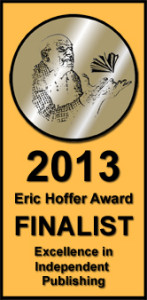
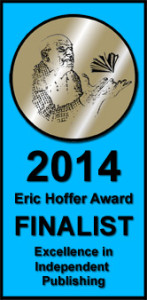
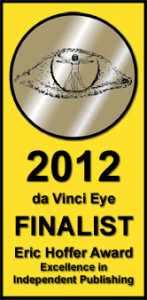

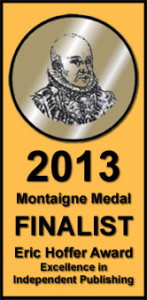
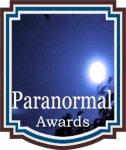
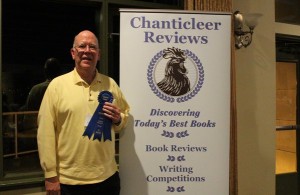
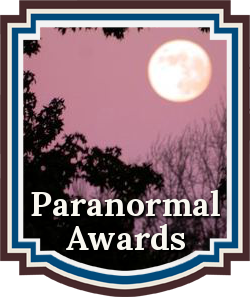
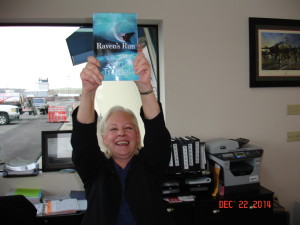
John,
Is there a way to ask reviewers to comment upon the overall book but also to include a particular passage they liked or didn’t like–and why? That might kill the trolls, but also bring a part of the books to life as a reader’s POV. A friend whose daughter bought “Privacy Wars” for him for Christmas had a comment which you echoed (He said it first.): “I always like to ask the manuscript reviewers, “Does the work have a ‘beat to it?’ Does the story move along? Are the characters memorable?” He said the story just absolutely flowed, which made it very easy to read.
Pingback: Time To Go On The Offense Against Liberalism -- How to win and what to do. | Freedom Writers